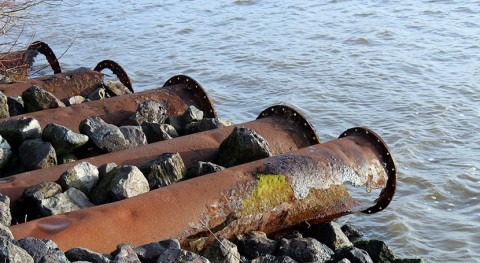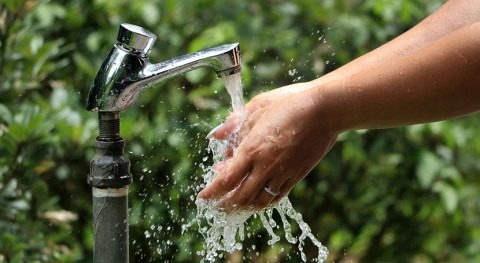Changing drought, flood, and storm conditions has the potential to result in losses of up to $27 billion in GDP to the UAE in the Middle East throughout the period 2022 to 2050, an average annual GDP loss of 0.1%, according to new research, launched today by global professional services company GHD.
The GHD study, Aquanomics: The economics of water risk and future resilience, projects the future economic impact of water risk in a diverse range of climates: the UAE, Australia, Canada, China, the Philippines, the UK, and the US. While the economic shock of water risk will accelerate throughout the century, it is a particularly pressing concern this decade; between now and 2030, water risk could potentially cost these key economies an estimated total of just over $1.3 trillion rising to 65.6 trillion by 2050.
The study is the first to calculate the impact of water risk on GDP across the economy as a whole and at a sector level. The research combines insurance data with econometric modelling to demonstrate the wider economic impact of increased future water risk.
The study also highlights how increasingly frequent and severe water-related events not only pose a threat to global economies, but to the communities and natural ecosystems that rely on a balanced water cycle.
The study has found that the UAE will face a notable degree of water risk — albeit low when compared to other countries and regions within the study. The main sector-level threat to the UAE is projected to fall on the UAE’s growing agricultural sector, with potential output losses of 0.5% year-on-year due to the broad range of water risks. The Emirates are known to contain a unique water risk profile across both the desert and developed city landscapes, to which rising temperatures and greater frequency and voracity of dust storms could threaten.
Aquanomics also reveals that water risk will not be spread evenly across countries, and outlines the unique opportunity the UAE has in preparing its communities, infrastructure, and investment portfolio to mitigate such risk. In terms of total water-related GDP losses between 2022 and 2050, it is estimated that the US will be hit hardest, with projected losses of $3.7 trillion, whilst the UAE, a notably dry country, is expected to be affected significantly less, with projected losses of $27 billion.
Estimated GDP loss by country between 2022 and 2050
 The study also presents the potential future impact on five critical economic sectors: agriculture; banking and insurance; energy and utilities; fast-moving consumer goods (FMCG) and retail; and manufacturing and distributions. The Aquanomics model predicts the agriculture sector will be the most heavily affected by increasing water risk — facing an average annual output loss of 0.5% and total output losses of $3 billion by 2050. Despite the nexus between water and energy systems, the energy and utilities sector are estimated to be the least affected, with total projected output losses of $2 billion.
The study also presents the potential future impact on five critical economic sectors: agriculture; banking and insurance; energy and utilities; fast-moving consumer goods (FMCG) and retail; and manufacturing and distributions. The Aquanomics model predicts the agriculture sector will be the most heavily affected by increasing water risk — facing an average annual output loss of 0.5% and total output losses of $3 billion by 2050. Despite the nexus between water and energy systems, the energy and utilities sector are estimated to be the least affected, with total projected output losses of $2 billion.
 Regarding the study, Andrew Saunders, UAE Water Market Lead at GHD, said:
Regarding the study, Andrew Saunders, UAE Water Market Lead at GHD, said:
“As one of the world’s leading water-scarce countries, the UAE has heavily pursued desalination methods to provide sufficient supply and mitigate risk, with 42% of its potable water supply coming from the desalination of seawater.
However, these methods come at both a high economic price and with defined environmental impacts, and subsequently, the UAE will need to pursue fewer and more efficient desalination methods as the technology evolves.
Applying a long-term perspective and increasing the use of innovative technologies such as water recycling and the use of renewable energy for desalination will be key to building resiliency in the country and enable targeted demand management. The strategic use of precious groundwater resources will also be crucial, particularly for the agricultural sector.
The study has highlighted the opportunity that the UAE has to innovate and set a global benchmark around modern water management, one that will enable appropriate response to the major impacts that climate change is having, and create sustainable, vibrant, and resilient communities in the UAE.”














